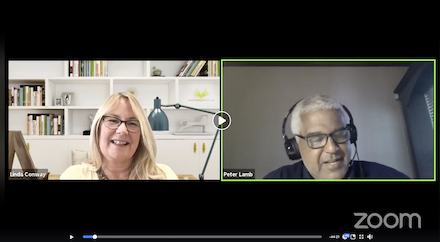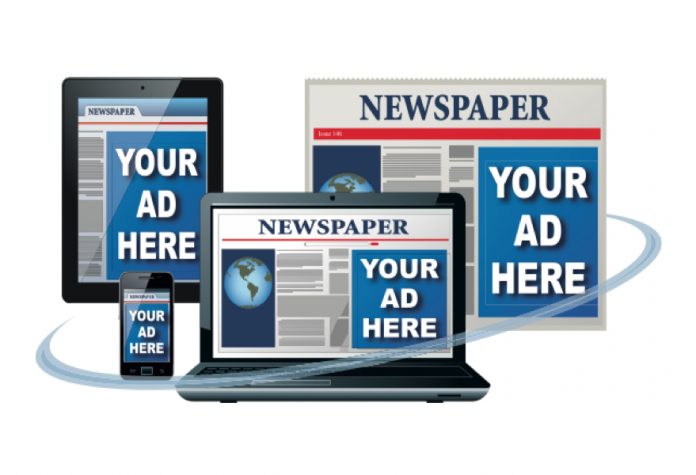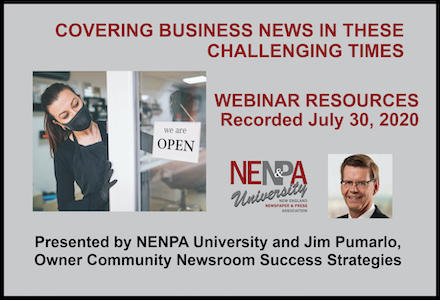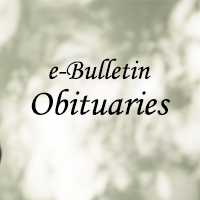So, you think the already harsh language in this year’s presidential campaign is the worst ever?
Probably not — and additionally, political speech, vulgarities, mocking nicknames, claims of incompetence and criminal conduct and a host of personal attacks all are protected by the First Amendment’s guarantee of freedom of speech.
The high legal bar for public figures to successfully sue for defamation, combined with a historical judicial reluctance to intervene in political campaigns, allows candidates and their surrogates to sling the most vituperative verbal assaults.
And throughout our history, they have.
Historian Rick Shenkman, author of “Presidential Ambition: Gaining Power at Any Cost,” has said, “Our first two elections were pretty clean, but after that they became dirty … Even George Washington (who ran unopposed in his first election, in 1788) complained he had to endure more attacks than Emperor Nero.”
The first real presidential contest, in 1800, produced what many historians might rank as number one in personal attacks, as then-President John Adams faced off against Vice President Thomas Jefferson.
From the president of Yale University, an Adams supporter, came the warning that if Jefferson won, “We would see our wives and daughters the victims of legal prostitution.” A newspaper in Connecticut declared that Jefferson would establish a nation where “murder, robbery, rape, adultery and incest will openly be taught and practiced.”
In response, Jefferson’s advocates wrote that Adams was a liar, a would-be king, repulsive and a “gross hypocrite” who “behaved neither like a man nor like a woman but instead possessed a hideous hermaphroditical character.”
A cartoon in 1800 shows a kneeling Jefferson about to place the U.S. Constitution into a fire built on a pedestal labeled French “despotism,” already ablaze with papers labeled as American patriotic essays.
Adams’s son, John Quincy Adams, was both target and attacker in the presidential elections of 1824 and 1828 when facing Andrew Jackson, who lost to Adams in the first contest and won four years later.
“American President: A Reference Resource” by the Miller Center at the University of Virginia, notes that in those contests, Adams called Jackson a “corruptionist, an aristocrat and a budding tyrant in the model of Caesar or Napoleon,” whose election would mean the end of the new American nation.
Adams’s opponents spread the unjustified charge that the president had arranged a sexual liaison between a young American girl and the Russian tsar during Adams’s time as U.S. ambassador to Russia. On the lighter side, they also published reports that Adams did not wear underwear and went barefoot to church services.
Jackson suffered through attacks in the 1828 election on his wife, Rachel, who it was said — apparently with some justification by historians — had not yet divorced her first husband before marrying Jackson. She died of a heart attack after Election Day but before Jackson’s inauguration, and at her funeral, the president-elect blamed his campaign opponents for her death. “May God Almighty forgiver her murderers, as I know she forgave them,” he said. “I never can.”
While social media may have energized today’s political exchanges — for good or bad — use and abuse of new means of communication are not new, either. In the presidential election of 1928, eventual winner Herbert Hoover ran against three-term N.Y. Gov. Al Smith, the first Catholic to be nominated by either major party. Smith’s religion was a major factor in the campaign, just three years after the Ku Klux Klan held a major parade in the streets of Washington, D.C.
“News photos” were manipulated and false claims spread that New York City’s just-completed Holland Tunnel was in fact a secret passage not to New Jersey, but to Vatican City — to be used by the pope, who would prompt Smith to take over the United States. In similar fashion, a political cartoon titled “Cabinet Meeting — If Al were elected” appeared in the “Fellowship Forum,” an official publication of the Klan. It shows the pope and other Catholic clergy at a table in the White House, with Smith in a servant’s uniform holding a whiskey jug. A news report says “more than 100,000 copies were intended to flood” southern states days before the election.
(Smith, soundly defeated, had a last laugh: In accounts by both his supporters and opponents, who no doubt had differing views on its meaning, Smith is said to have sent a one-word telegram to the pope after losing: “Unpack.”)
Some political opponents have a much more serious response to what they see as scurrilous or defamatory political speech. In 2010, an Iowa state senator won a lawsuit and more than $230,000 in damages against his opponent over a political ad he said falsely linked him to a company alleged to have sold a dangerous drug to children.
But the Iowa Supreme Court overturned the jury verdict, saying “The result … is not to imply actual malice cannot exist within the rough and tumble Wild West approach to negative commercials that have seemingly become standard discourse in many political campaigns. … but the high standards established under the First Amendment to permit a free exchange of ideas within the same discourse must also be protected.”
President Trump has said multiple times that he wants to “open up” libel laws, which could affect future campaigns by weakening free speech protections resting on a landmark 1964 U.S. Supreme Court decision, New York Times Co. v. Sullivan. It reinforced those protections when public officials (later expanded to include public figures) are involved.
Justice William Brennan wrote that the decision was rooted in a “profound national commitment to the principle that debate on public issues should be uninhibited, robust and wide open and that it may well include vehement, caustic and sometimes unpleasantly sharp attacks on government and public officials.”
Whether offended by Trump’s impolitic use of derogatory nicknames for his opponents, or by “Saturday Night Live” Trump parodies on TV, that commitment to “uninhibited, robust and wide-open” debate on issues and even candidate personalities is a hallmark of American democracy — even if, at times, we might cringe at how it’s carried out.
Politicians get their say during campaigns. Government stays out of the way. And we get to respond at the ballot box.















Harsh words in presidential campaigns: Protected, nothing new
So, you think the already harsh language in this year’s presidential campaign is the worst ever?
Probably not — and additionally, political speech, vulgarities, mocking nicknames, claims of incompetence and criminal conduct and a host of personal attacks all are protected by the First Amendment’s guarantee of freedom of speech.
gpolicinski@freedomforum.org, or follow him on Twitter at @genefac.
The high legal bar for public figures to successfully sue for defamation, combined with a historical judicial reluctance to intervene in political campaigns, allows candidates and their surrogates to sling the most vituperative verbal assaults.
And throughout our history, they have.
Historian Rick Shenkman, author of “Presidential Ambition: Gaining Power at Any Cost,” has said, “Our first two elections were pretty clean, but after that they became dirty … Even George Washington (who ran unopposed in his first election, in 1788) complained he had to endure more attacks than Emperor Nero.”
The first real presidential contest, in 1800, produced what many historians might rank as number one in personal attacks, as then-President John Adams faced off against Vice President Thomas Jefferson.
From the president of Yale University, an Adams supporter, came the warning that if Jefferson won, “We would see our wives and daughters the victims of legal prostitution.” A newspaper in Connecticut declared that Jefferson would establish a nation where “murder, robbery, rape, adultery and incest will openly be taught and practiced.”
In response, Jefferson’s advocates wrote that Adams was a liar, a would-be king, repulsive and a “gross hypocrite” who “behaved neither like a man nor like a woman but instead possessed a hideous hermaphroditical character.”
A cartoon in 1800 shows a kneeling Jefferson about to place the U.S. Constitution into a fire built on a pedestal labeled French “despotism,” already ablaze with papers labeled as American patriotic essays.
Adams’s son, John Quincy Adams, was both target and attacker in the presidential elections of 1824 and 1828 when facing Andrew Jackson, who lost to Adams in the first contest and won four years later.
“American President: A Reference Resource” by the Miller Center at the University of Virginia, notes that in those contests, Adams called Jackson a “corruptionist, an aristocrat and a budding tyrant in the model of Caesar or Napoleon,” whose election would mean the end of the new American nation.
Adams’s opponents spread the unjustified charge that the president had arranged a sexual liaison between a young American girl and the Russian tsar during Adams’s time as U.S. ambassador to Russia. On the lighter side, they also published reports that Adams did not wear underwear and went barefoot to church services.
Jackson suffered through attacks in the 1828 election on his wife, Rachel, who it was said — apparently with some justification by historians — had not yet divorced her first husband before marrying Jackson. She died of a heart attack after Election Day but before Jackson’s inauguration, and at her funeral, the president-elect blamed his campaign opponents for her death. “May God Almighty forgiver her murderers, as I know she forgave them,” he said. “I never can.”
While social media may have energized today’s political exchanges — for good or bad — use and abuse of new means of communication are not new, either. In the presidential election of 1928, eventual winner Herbert Hoover ran against three-term N.Y. Gov. Al Smith, the first Catholic to be nominated by either major party. Smith’s religion was a major factor in the campaign, just three years after the Ku Klux Klan held a major parade in the streets of Washington, D.C.
“News photos” were manipulated and false claims spread that New York City’s just-completed Holland Tunnel was in fact a secret passage not to New Jersey, but to Vatican City — to be used by the pope, who would prompt Smith to take over the United States. In similar fashion, a political cartoon titled “Cabinet Meeting — If Al were elected” appeared in the “Fellowship Forum,” an official publication of the Klan. It shows the pope and other Catholic clergy at a table in the White House, with Smith in a servant’s uniform holding a whiskey jug. A news report says “more than 100,000 copies were intended to flood” southern states days before the election.
(Smith, soundly defeated, had a last laugh: In accounts by both his supporters and opponents, who no doubt had differing views on its meaning, Smith is said to have sent a one-word telegram to the pope after losing: “Unpack.”)
Some political opponents have a much more serious response to what they see as scurrilous or defamatory political speech. In 2010, an Iowa state senator won a lawsuit and more than $230,000 in damages against his opponent over a political ad he said falsely linked him to a company alleged to have sold a dangerous drug to children.
But the Iowa Supreme Court overturned the jury verdict, saying “The result … is not to imply actual malice cannot exist within the rough and tumble Wild West approach to negative commercials that have seemingly become standard discourse in many political campaigns. … but the high standards established under the First Amendment to permit a free exchange of ideas within the same discourse must also be protected.”
President Trump has said multiple times that he wants to “open up” libel laws, which could affect future campaigns by weakening free speech protections resting on a landmark 1964 U.S. Supreme Court decision, New York Times Co. v. Sullivan. It reinforced those protections when public officials (later expanded to include public figures) are involved.
Justice William Brennan wrote that the decision was rooted in a “profound national commitment to the principle that debate on public issues should be uninhibited, robust and wide open and that it may well include vehement, caustic and sometimes unpleasantly sharp attacks on government and public officials.”
Whether offended by Trump’s impolitic use of derogatory nicknames for his opponents, or by “Saturday Night Live” Trump parodies on TV, that commitment to “uninhibited, robust and wide-open” debate on issues and even candidate personalities is a hallmark of American democracy — even if, at times, we might cringe at how it’s carried out.
Politicians get their say during campaigns. Government stays out of the way. And we get to respond at the ballot box.